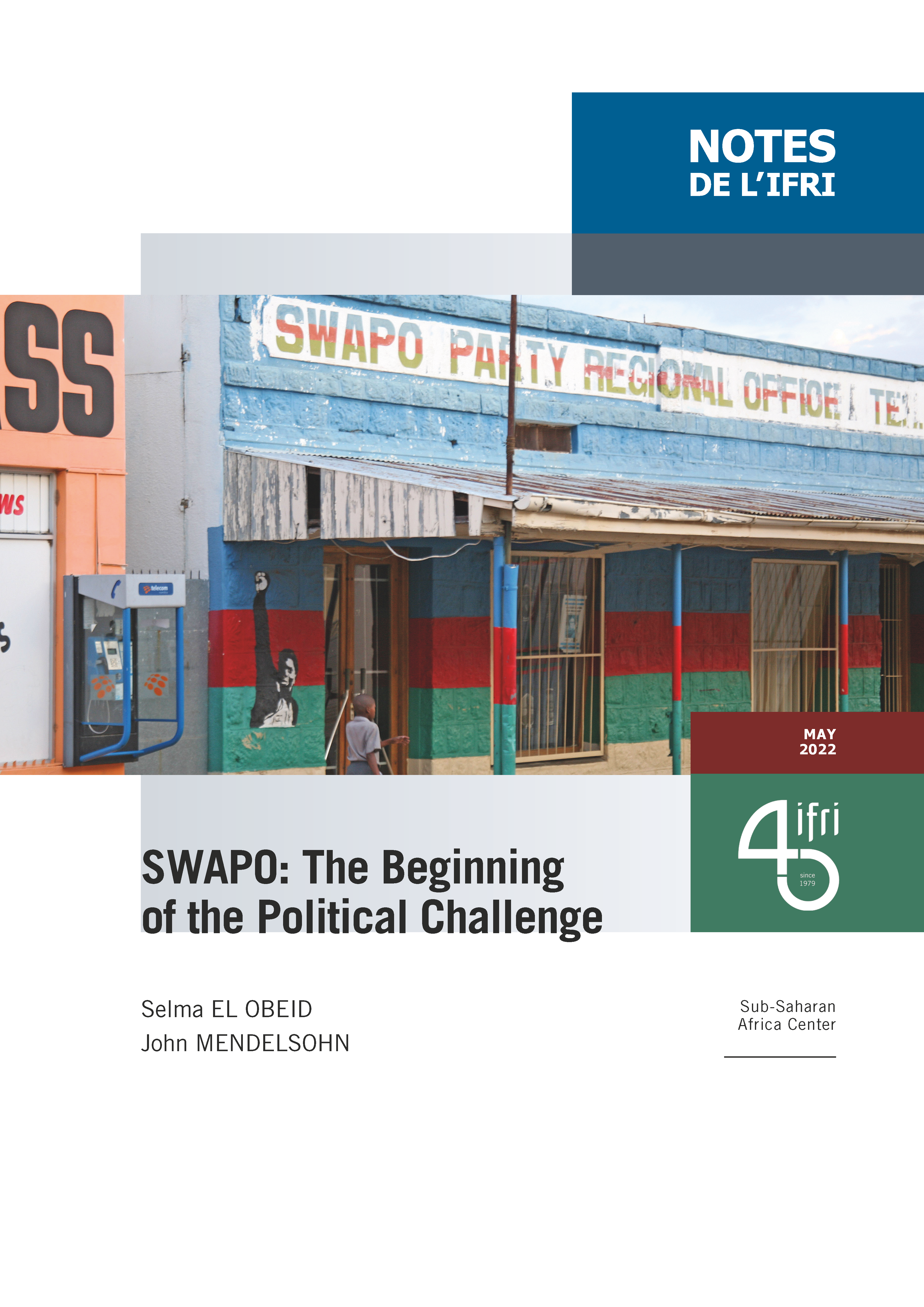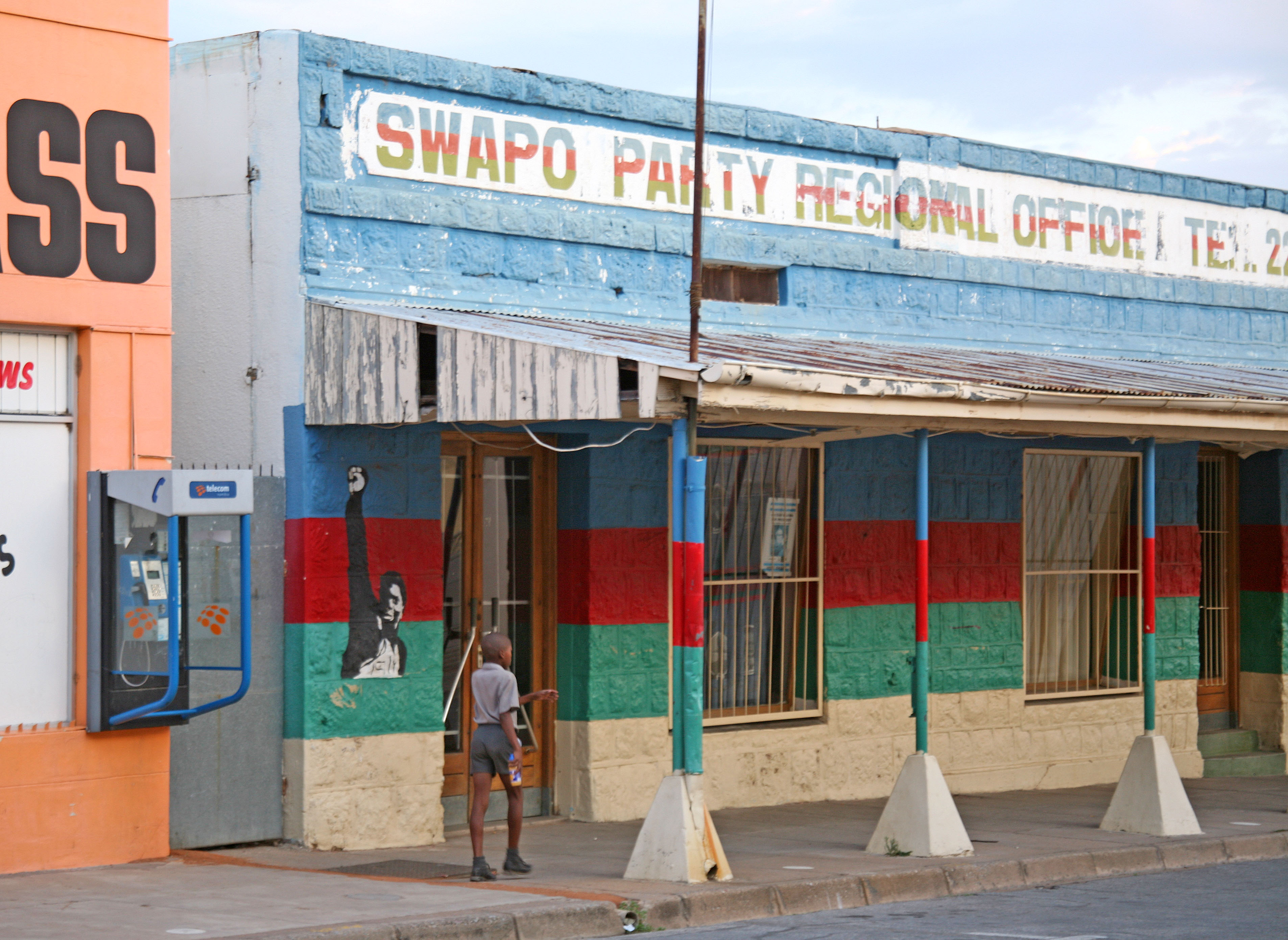SWAPO: The Beginning of the Political Challenge

Increasingly, the South West Africa People’s Organization (SWAPO) is on shaky ground, caught between internal factionalism and external resentment. Whereas no major new political party has emerged since independence, opposition parties are gradually gaining support, mainly among young voters, and now control the three most important economic centers, weakening SWAPO's thirty-year one-party domination.

SWAPO’s old guard is engaged in hardened leadership battles, while SWAPO Youth League members claim populist reforms. Rival SWAPO members are openly calling for Geingob’s government to be recalled. It has become commonplace that SWAPO hardliners make direct and veiled threats towards their opponents. In this context, the 2019 ballots reflected a major slump in the party’s popularity. SWAPO presidential candidate Hage Geingob was elected with a majority of 56%, way down from his 86% of the vote in 2014.
For the first time, the party lost its two thirds majority in the National Assembly, as well as its dominance in the local councils during the 2020 local authority election. This slump came as a result of Namibia’s economic woes, high-level corruption scandals, and internal power struggles, and younger and more discerning voting public. SWAPO has become a business empire that benefits its elite patrons and clients, a far cry from its role in gaining Namibia’s independence in 1990 and its promise to deliver comprehensive social and economic development. As a result, young voters of the so-called “born free” generation and Namibia’s rapidly urbanizing population are shifting political dynamics as they clamor for accountable leadership and better economic opportunities.
Despite growing dissatisfaction with the ruling party, no major new political party has emerged since independence. However, opposition parties are gradually gaining support, mainly among young voters, and now control the three most important economic centers – Windhoek, Walvis Bay and Swakopmund. After thirty years at the helm, SWAPO’s one-party domination has weakened, and is now challenged to earn its place in the future.
This paper analyzes these new political dynamics through the results of the last national and local elections. It explains the reasons behind SWAPO’s decline, and their chances of holding onto power.

Available in:
Regions and themes
ISBN / ISSN
Share
Download the full analysis
This page contains only a summary of our work. If you would like to have access to all the information from our research on the subject, you can download the full version in PDF format.
SWAPO: The Beginning of the Political Challenge
Related centers and programs
Discover our other research centers and programsFind out more
Discover all our analysesAnglo-Kenyan Relations (1920-2024) : Conflict, Alliance and a Redemptive Arc
This article provides an evidentiary basis for postcolonial policy in its analysis of Anglo-Kenyan relations in a decolonization era.
When City Diplomacy Meets Geopolitics: A Framework to Help Cities Navigate Geopolitical Risk
Crises and the increasing polarization of international relations make political risk analysis an indispensable resource for internationally active public and private entities.
The United Nations Mission in Congo or the exemplary uselessness of the United Nations peacekeepers
During the M23 conflict in 2012-2013 in the Democratic Republic of Congo (DRC), the United Nations (UN) took the diplomatic initiative (by initiating the Addis Ababa agreement) and the military initiative (by launching a coordinated counter-offensive with the Congolese army). Since the resurgence of this conflict in 2022, the United Nations, which still has more than 10,000 peacekeepers deployed in eastern DRC, no longer plays any role.
Rebooting Italy's Africa Policy: Making the Mattei Plan Work
Against the backdrop of increasing anti-French rhetoric across parts of Francophone Africa, the relative failure of the counterinsurgency operation in the central Sahel (Operation Barkhane) and diplomatic rifts with several Sahelian countries, Paris has been rethinking its relationship with the continent for several years now. As a former imperial power that has seen its colonial domain in Africa gain independence between 1956 (Morocco-Tunisia) and 1977 (Djibouti), France has invented two successive roles for itself in Africa since 1960, particularly in French-speaking sub-Saharan Africa.








